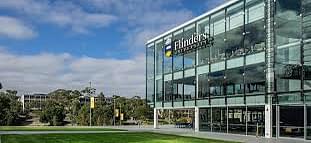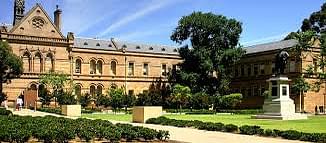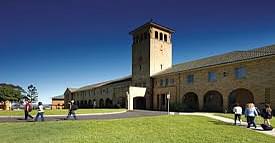₹14.5 L/Yr
Tuition Fees
| Year | 1st Year Fees |
|---|---|
| Tuition Fees | ₹1445036 (AUD 25795) |
Previous Year Tuition Fees
| Year | 1st Year Fees |
|---|---|
| 2021 | ₹1394954 (AUD 24901) |
Masters in Data Science puts professionals who recognise the power of data and numbers ahead of the pack. CU students have the advantage of learning how to apply data science skills to tropical, regional, and Aboriginal and Torres Strait Islander contexts. Through this course, one can:
- Benefit from industry expertise with courses taught by data scientists, SAS partnership and certification, and access to the SAS Data Science Academy.
- Enhance your employability and advance your career in Australia and globally through the Master's Employability Program. Complete a structured co-curricular employability skills and development program, which runs for the duration of the degree. This includes a tailored plan to support individual employment objectives, beginning from semester one through to graduation.
- Learn to exercise your professional judgment to suit specific circumstances and have the opportunity to complete a substantial research-based project. Your capstone project will allow you to build a portfolio to showcase your expertise.
- Upon graduating, you will be across recent developments and modern challenges in data science and equipped with skills in key areas including machine learning, data mining, algorithm development, and advanced modelling.
- You will have senior industry contacts, experience with real-world projects, and a foundational understanding of technology that allows you to adapt to every innovation. You will know when and how to apply computing languages and computational tools for data acquisition, queries, management, analysis, and visualisation.
Eligibility & Entry Requirement
Academic Requirements:
- Completion of an AQF level 7 bachelor degree; or
- Five (5) years or more relevant industry experience in IT or Data Science/Data Analytics; or
- Other qualifications or practical experience recognised by the Dean, College of Science and Engineering as equivalent to the above.
- Entry requirements for this course are consistent with the Pathways to Qualifications in the Australian Qualifications Framework (AQF level 9) Guidelines for Masters degrees.
- Mathematics B (or equivalent that includes algebra and elementary differential calculus) together with some background in computing, data analysis or programming is assumed.
- Admission based on relevant industry experience must be supported by a detailed CV and proof of work experience (e.g. a letter from an employer detailing the position and job description).
Scores Required
TOP Scholarships
| Scholarship name | Award amount | Eligibility |
|---|---|---|
| - | - | - |
| - | - | - |
| - | - | - |
Key Resources for Your Study Abroad Journey
Course Guides
Masters in Data Science in Australia: Fees 2023, Top Colleges, Admissions, Placements & Salaries
Career and Placement after Course
JCU Data Science (Professional) graduates are highly skilled specialists with invaluable professional expertise. These graduates benefit from rapidly increasing job openings across the data industry and a data-driven future. They can apply data science to industrial, environmental, cultural, societal, and agricultural projects. One can find work as a data scientist, data engineer, data analyst, data architect, visualisation specialist or statistician.
Scholarship Grants & Financial Aids
| Name | Scholarship Per Student | Level of Study | Type | |
|---|---|---|---|---|
| Rotary Foundation Scholarships- Global Grants | Scholarship per studentVariable Amount | Level Of StudyMaster | TypeCompany-Sponsored | |
| Bharat Petroleum Scholarship 2020 | Scholarship per studentVariable Amount | Level Of StudyMaster | TypeMerit-Based | |
| Deutschland Stipendium Program | Scholarship per student₹ 2.4 L/Yr$4,363 | Level Of StudyBachelor | TypeCollege-Specific | |
| Paul Foundation scholarships | Scholarship per student₹ 11.3 L/Yr$20,174 | Level Of StudyDiploma | TypeMerit-Based | |
| Axol Science Scholarship | Scholarship per student₹ 1.1 L/Yr$2,000 | Level Of StudyBachelor | TypeCompany-Sponsored | |
| BrokerFish International student scholarship | Scholarship per student₹ 56,020/Yr$1,000 | Level Of StudyBachelor | TypeMerit-Based |
Similar Programs
| Program | Important Date | Total Fees | Median Exams Score | Action |
|---|---|---|---|---|
-- | INR 19.6 L/Yr AUD 34,944 /Yr |
| ||
-- | INR 20.5 L/Yr AUD 36,600 /Yr |
| ||
-- | INR 16.1 L/Yr AUD 28,756 /Yr |
| ||
-- | INR 19.8 L/Yr AUD 35,400 /Yr |
| ||
-- | INR 26.5 L/Yr AUD 47,264 /Yr |
|
Do you think the Dates are wrong ? Report Here
Similar Colleges


Flinders University


University of Adelaide


University of South Australia


University of New England


Australian Catholic University


Griffith University


Queensland University of Technology


The University of Queensland
































Comments